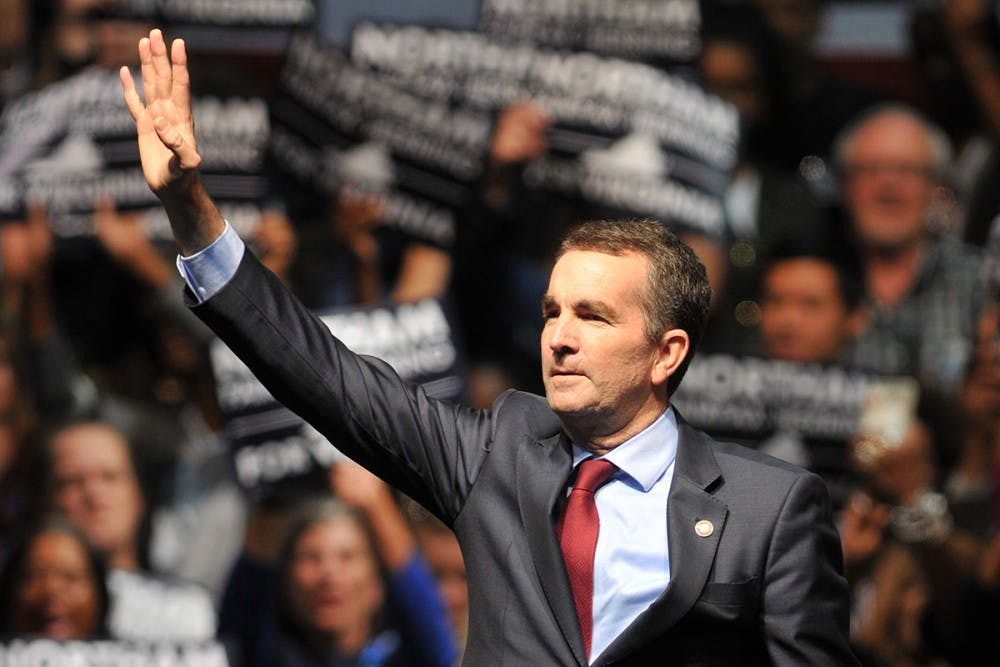With an election every year in Virginia, November is filled with knocks on doors, mailboxes full of campaign mailers and a seemingly infinite number of phone calls from relentless campaigns petitioning for your vote. This leaves many Virginians disenchanted with the world of politics, contributing to lower voter turnout— either as a display of protest or apathy. When you fail to cast your ballot, your complaints and opinions about the government and its policies are invalidated. You have no room to lament about the government if you do not vote.
Following the 2016 presidential election, people took to social media to protest the outcome — while the results were upsetting for many Americans, perhaps they should be the most upsetting for those who failed to vote. Those individuals had the ability to change the course of American history, but failed to do so. Furthermore, by failing to exercise their civic duty they lost any ability to legitimately complain about the actions of President Donald Trump.
A democratic system where representatives are popularly elected is only successful if people vote. When people fail to vote, elected officials are not representative of their constituents. In order to have an effective government, it is imperative that people vote. Moreover, according to voter turnout data, Americans generally believe that presidential elections are the most important. The 2016 general election in Virginia saw voter turnout double from 2015, when the entire House of Delegates and State Senate were up for election. While the U.S. President holds the highest office in country, local elections are arguably more important. At the local level, decisions about schools, transportation, waste removal and taxation are made. These decisions often have the most impact on our everyday lives.
On Tuesday, the entire nation watched as Ralph Northam was elected as the 73rd Governor of Virginia. He now possess the power to appoint members of the University’s Board of Visitors. The BOV directly influences the lives of students at the University, as demonstrated by their decision to remove Confederate Plaques from the Rotunda and the decision to raise tuition this past spring. By voting in the gubernatorial election, students influenced the trajectory of the University as it enters its third century.
Even though the American electorate has increased throughout history, voter turnout still remains low compared to other developed nations. In 2016, voter turnout was about 87 percent, but these numbers can be deceiving as they only include registered voters. In Virginia, however, the 2016 turnout among registered voters was even lower than the national average, with only 72 percent making it to the polls. Historically, voter turnout in presidential elections diminishes greatly in off year elections. Even in gubernatorial elections, turnout is usually under 50 percent. However, this year Virginia saw a five percent increase in voter turnout from the last gubernatorial election in 2013 — 47.8 percent of registered voters made it to the polls on Tuesday compared to 42.7 percent in 2013. This increase in voter turnout demonstrates the frustration manifested in action as a result of the 2016 election.
With this surge in voter turnout came Democratic victories across the Commonwealth, some with incredibly narrow margins. Four races in the House of Delegates were too close to call on election night and are now in the process of being recounted. So, yes one vote can make a difference and potentially decide an election. Voting not only gives you the power to determine your representatives and the policies that they enact, but it also gives you the liberty to voice your concerns with the government and its policies. By failing to vote, you relinquish your right to complain about the government. So next time you want to complain about the actions of the BOV, legislation passed by the Charlottesville City Council, or executive orders by President Trump, stop and think: “Did I vote?” If the answer is “no,” then lobby your representatives, engage with advocacy work, start working on a campaign or vote in the next election. The determination and tenacity to make change was demonstrated by Virginia Democrats on Tuesday with high voter turnout and victories up and down the ballot.
Mary Alice Kukoski is an Opinion columnist for The Cavalier Daily. She can be reached at opinion@cavalierdaily.com.







